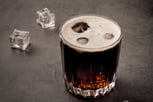Drinking alcohol daily is expensive!
The money it takes to sustain an addiction to alcohol can put many alcoholics in a state of financial despair. And for functioning addicts who find themselves without financial consequences, there’s still a noticeable expense to maintain a drinking habit. From expensive bar tabs to the financial drain of having to keep the house stocked with beer, wine and/or liquor, the cost of alcohol rises as the disease progresses.
Here’s one thing you should try spending your money on instead: self-care.
When you’re in active addiction, spending your money on things other than alcohol don’t add up to much regardless of their financial or spiritual value. Without self-care, anything you might buy or do will fall short and likely be preceded, accompanied or followed by alcohol.
What Does Self-Care Entail?
Self-care literally means taking care of yourself. When you are in active addiction, this is easier said than done. It requires you to understand and fully believe that you are worthy—something the addicted mind doesn’t want you to admit. For someone new to this journey, here are a few ways you can begin to invest in your own well-being.
1. Get a professional to guide you.
Taking care of yourself is to eliminate the substances or behaviors that have contributed to self-destructive actions and toxic relationships. If you’ve tried to relieve your body of the poison and failed time and time again, it’s time to seek professional assistance. This involves some form of addiction treatment and professional therapy. Here's a list of addiction professionals you can call to inquire. Bear in mind that therapeutic services are not always provided through treatment facilities and are not offered post-discharge. However, putting yourself through proper alcohol detox is already a leap in the right direction. The funds you would spend on alcohol could instead be spent on getting the help you need for your addiction, plus your health insurance may provide some coverage as well.
2. Carve out time to clear the mind.
Due to the need for holistic healing, other therapeutic measures can be taken to ensure you are attending to your body, mind and spirit. Therapeutic massage, Reiki, guided meditation, yoga and self-help books are great examples of processes and products that work to heal and evolve you. Of course, these methods can also be expensive. However, a one-hour massage or occasional yoga class won’t come close to the cost of two weeks of active addiction.
3. Take care of your body.
Diet and exercise are also important factors to consider. In active addiction, eating healthy and caring for your body are not always top priority. So to help repair your body, you may want to sign up for a gym membership and obtain vitamins and supplements in addition to eating nutritious food. The funds previously spent on alcohol can now be spent helping you get healthy.
4. Give yourself the gift of experiences.
Where relaxation and stress release was once sought out at the local bar or liquor store, the money spent on the latter can be used to book weekend getaways, purchase relaxing reading material or to take up a creative hobby. There’s a whole world of exciting possibilities out there that don’t involve having a drop of alcohol in your system.
When we’re busy succumbing to our addiction, it’s easy to lose sight of the things that truly matter. For many, self-care sound like a very simple thing, but it actually runs much deeper. It speaks to how much value you see in yourself as well as how strong of a hold the drink has on you. And while self-care can certainly be achieved without spending, looking at other ways to reallocate your drinking funds can quickly put things into perspective.
|
If you or someone you know is seeking help from addiction, please visit our directory of treatment centers or call 800-891-8171 to speak to a treatment specialist. |








